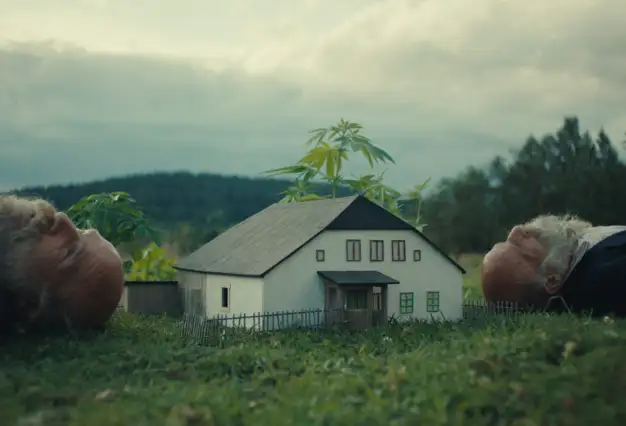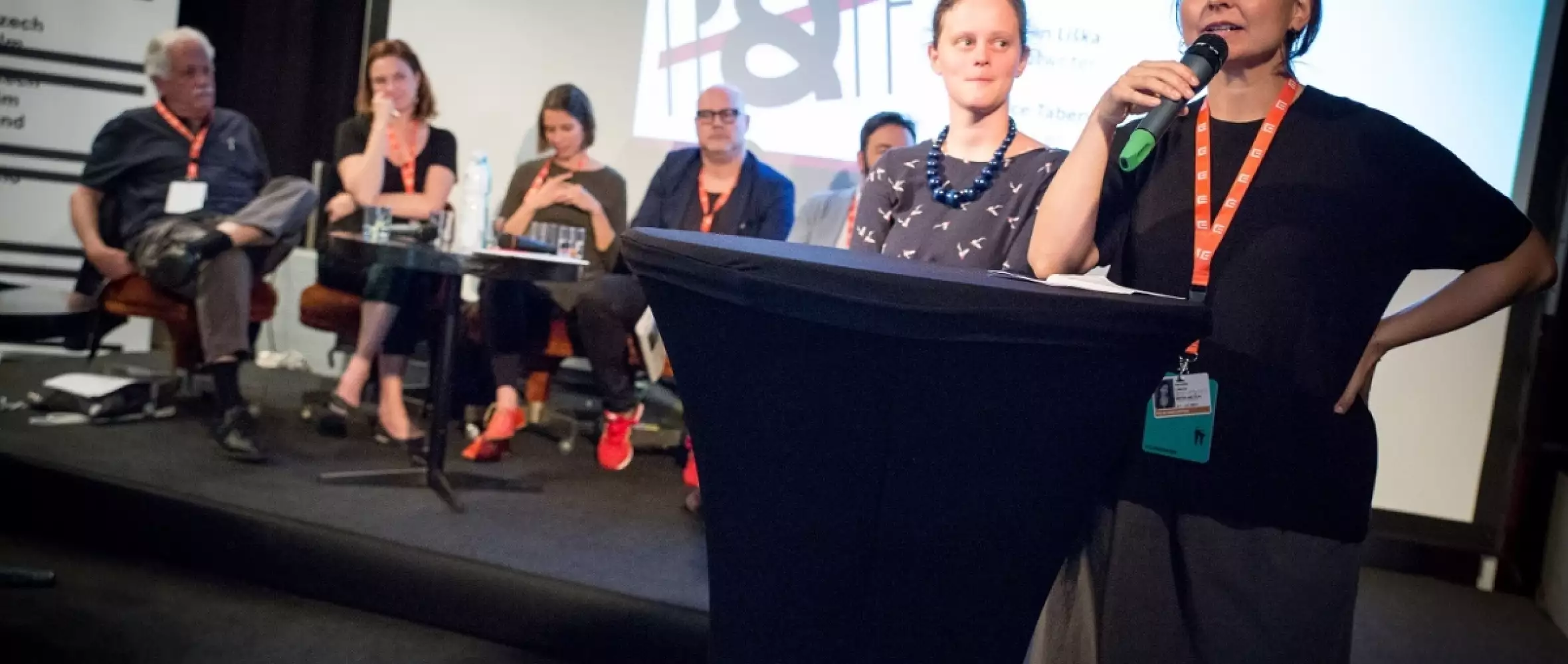
04 October 2017
Pitch & Feedback 2017: A Checkpoint for Future Award-Winners
Pitch & Feedback 2017: A Checkpoint for Future Award-Winners

Promising feature film projects in the early stages of development get the chance to connect with international experts at the Karlovy Vary Pitch & Feedback platform every year. In 2017, representatives of six Czech and Slovak films took the stage, with an eye to landing release deals outside their home countries.
Article by Martin Kudláč from Czech Film Magazine / Fall 2017
“The event gave us great insight into the upcoming Czech and Slovak projects in development. In particular, the individual consultations prior to the pitching were a perfect chance to get to know the filmmakers, the producers, and their projects,” said Oliver Rittweger of the Mitteldeutsche Medienförderung, one of this year’s international experts invited by the organizers - the Czech Film Center and the Slovak Film Institute. He praised the line-up, noting, “The organizers selected a nice range of genres, ranging from political thriller to roadmovie drama.”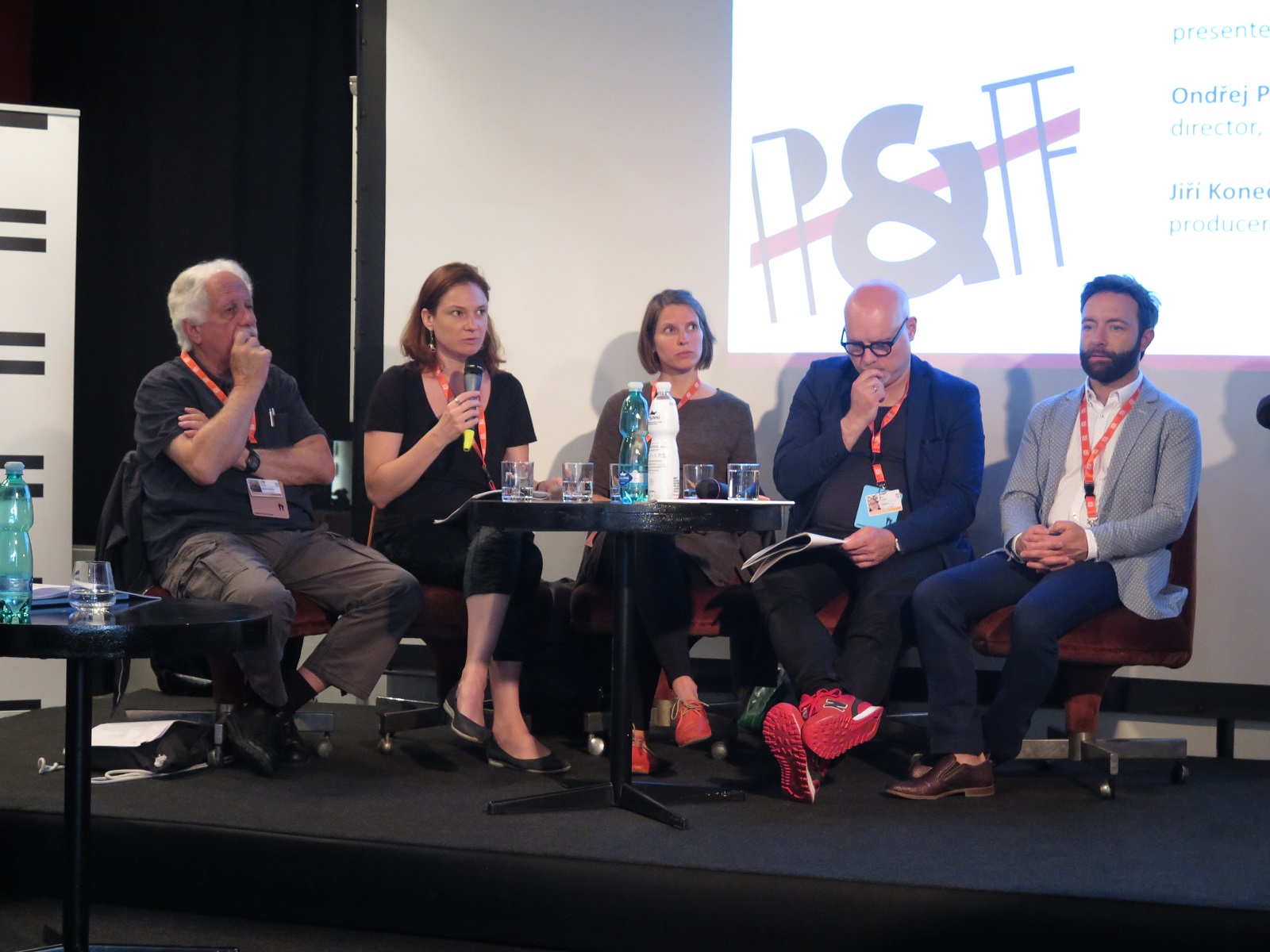
Angeliki Vergou of the Crossroads Co-production Forum, another expert panelist, said, “I can see that the organizers are making every effort to get the best results possible out of the event through the small changes that they have made, such as having the informal consultation one day before the formal pitching to the industry audience, which gives the presenters time to perhaps change something in their pitch or stress a particular detail that is needed.”
Vergou added, “What I like about the concept of Pitch & Feedback is the fact that it is just that. It doesn’t involve awards and the added stress of competition; it is not a coproduction market. It’s just a presentation of projects to a friendly industry audience, where they can get feedback for their next steps and test out their ideas.”
Two Pitch & Feedback alumni, Václav Kadrnka’s Little Crusader and Peter Bebjak’s The Line, netted accolades in this year’s Karlovy Vary main competition, Kadrnka taking the festival’s top honor. Others are also notching successes. Iveta Grófová’s Little Harbour took home a Crystal Bear from Berlin, while György Kristóf’s feature debut, Out, screened in the prestigious Cannes competition Un Certain Regard. Meanwhile, the class of 2017, readying projects to be released in the 2019-2020 season, inspire equal expectations — and they already have a handful of awards to prove their potential, despite being just at the start of their careers.
Absence
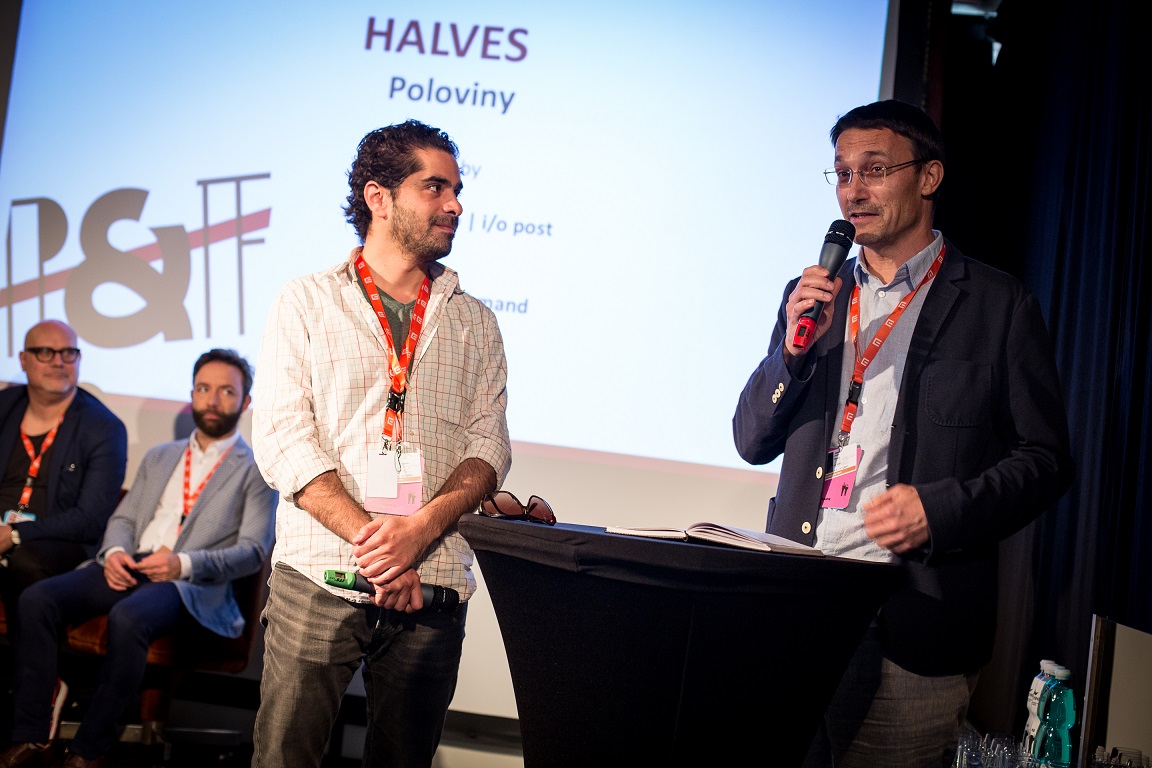 The Czech Republic as a coproduction partner is open to partnerships far beyond the usual territory of central Europe — even beyond the borders of the European continent. The latest evidence of that is a coproduction partnership with Iran on Ali Mosaffa’s project Absence (originally named Halves), which is poised to become the fourth such effort. Mosaffa sets out to explore the uncharted intersection of Iran and the crannies of Iranian history following the 1953 coup and its fallout. In this “mystical thriller,” Rouzbeh, the main character, flees Tehran, leaving behind his troubled family life to write a book about his father, a Communist expatriate in Czechoslovakia. When an investigation into the death of a resident in his father’s old apartment disrupts his efforts, Rouzbeh finds he is closer to the victim than he had thought. Meanwhile, he discovers facts about his father that contradict his idealized vision of him. The film’s producer, Jordi Niubó, of i/o post, compliments its ambitious dedication to telling this untold history, adding, “What excites me personally is its mysterious duality. It’s really a story about a departing soul and a vanishing past.”
The Czech Republic as a coproduction partner is open to partnerships far beyond the usual territory of central Europe — even beyond the borders of the European continent. The latest evidence of that is a coproduction partnership with Iran on Ali Mosaffa’s project Absence (originally named Halves), which is poised to become the fourth such effort. Mosaffa sets out to explore the uncharted intersection of Iran and the crannies of Iranian history following the 1953 coup and its fallout. In this “mystical thriller,” Rouzbeh, the main character, flees Tehran, leaving behind his troubled family life to write a book about his father, a Communist expatriate in Czechoslovakia. When an investigation into the death of a resident in his father’s old apartment disrupts his efforts, Rouzbeh finds he is closer to the victim than he had thought. Meanwhile, he discovers facts about his father that contradict his idealized vision of him. The film’s producer, Jordi Niubó, of i/o post, compliments its ambitious dedication to telling this untold history, adding, “What excites me personally is its mysterious duality. It’s really a story about a departing soul and a vanishing past.”
Let There Be Light
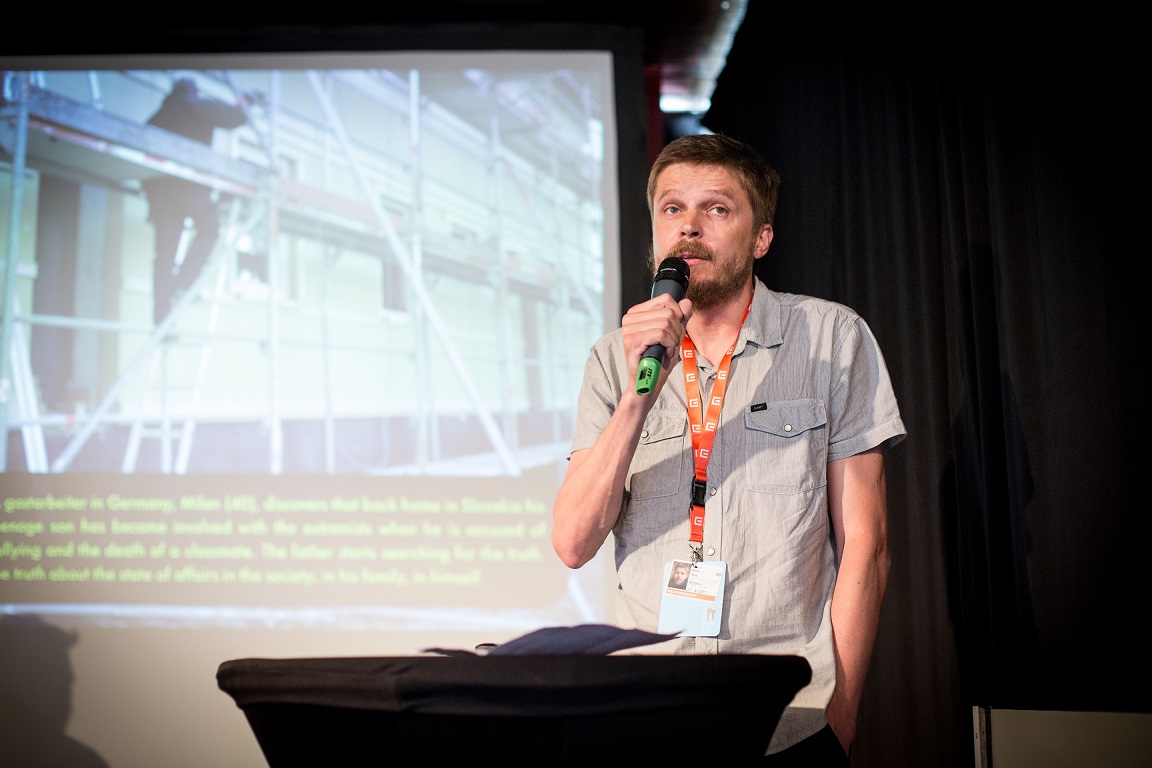 After his award-winning and critically acclaimed feature-length fiction debut, Eva Nová, Slovak filmmaker Marko Škop is already developing his sophomore outing, poetically titled Let There Be Light. His latest project is a reaction to creeping xenophobia and right-wing extremism in Central Europe, following fortysomething Milan, a Slovak Gastarbeiter in Germany, as he returns home after his teenage son is accused of bullying and killing a classmate. After discovering his son is involved in a nationalist militia, the father uncovers the truth about his society, his family, and, last but not least, himself. “I’m interested in the theme of an ordinary man — just one out of millions, part of the xenophobic mass, with his own tiny, ignorant contribution — when he is confronted with the consequences of hatred in a harsh way through events in his own family,” Škop explains. “I want to show how easily we become enemies to our own people — to depict evil and the mistakes that can lead to it when our existence is unstable.”
After his award-winning and critically acclaimed feature-length fiction debut, Eva Nová, Slovak filmmaker Marko Škop is already developing his sophomore outing, poetically titled Let There Be Light. His latest project is a reaction to creeping xenophobia and right-wing extremism in Central Europe, following fortysomething Milan, a Slovak Gastarbeiter in Germany, as he returns home after his teenage son is accused of bullying and killing a classmate. After discovering his son is involved in a nationalist militia, the father uncovers the truth about his society, his family, and, last but not least, himself. “I’m interested in the theme of an ordinary man — just one out of millions, part of the xenophobic mass, with his own tiny, ignorant contribution — when he is confronted with the consequences of hatred in a harsh way through events in his own family,” Škop explains. “I want to show how easily we become enemies to our own people — to depict evil and the mistakes that can lead to it when our existence is unstable.”
Made in Czechoslovakia
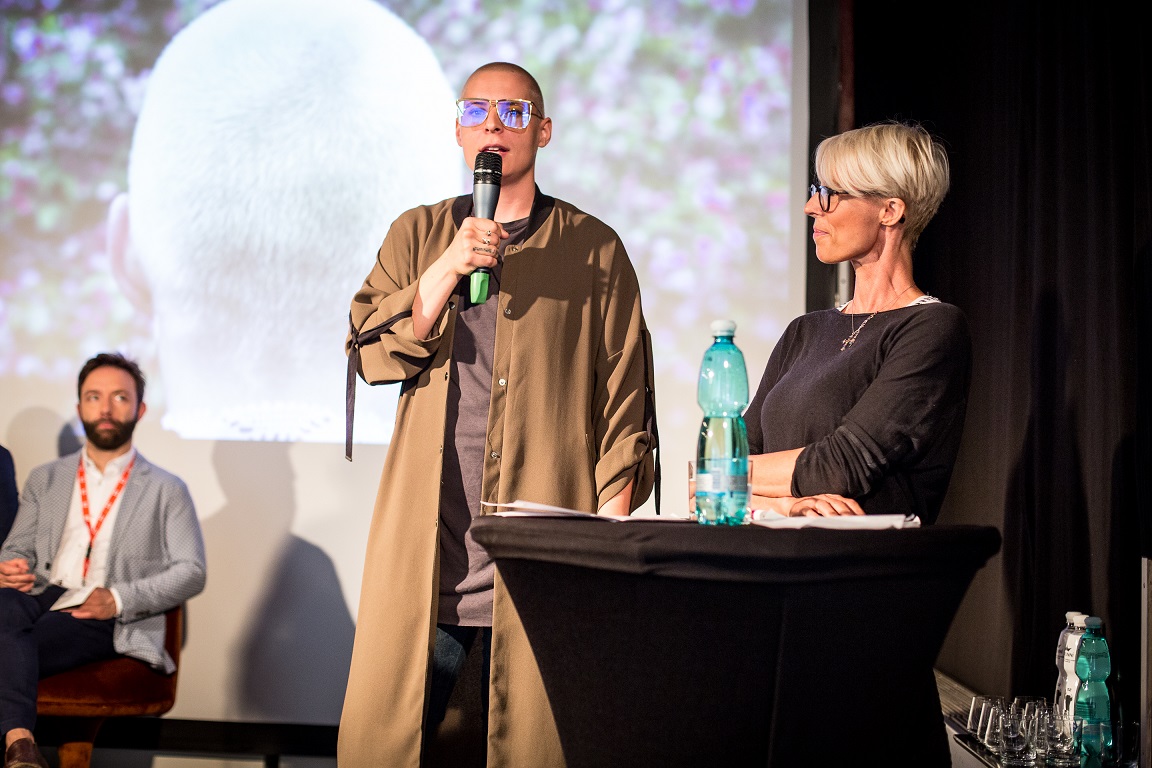 Prague-based Slovak editor Jana Nemčeková is hard at work on her writing-directing fiction feature debut,
Prague-based Slovak editor Jana Nemčeková is hard at work on her writing-directing fiction feature debut,
Made in Czechoslovakia, and isn’t worried it won’t pass the Bechdel test. The film’s main character is a stuntwoman named Monika, who sets out to solve the mystery of her mother, who abandoned her as a child. Inspired by actual events, Monika’s story reflects issues in parent-child psychology, as well as the generational differences fueled by the dissolution of Czechoslovakia after 1989, in this family drama with an archetypal storyline and a universal message. Referring to her project, currently in development, as a “female film,” Nemčeková says, “I’m a female author and a bad feminist. I show sex from a woman’s point of view and write about it from a woman’s perspective.” Barbara Janišová Feglová, producer of the project, sees Nemčeková as part of an emerging generation of talented European filmmakers and is convinced of the film’s international potential.
Power
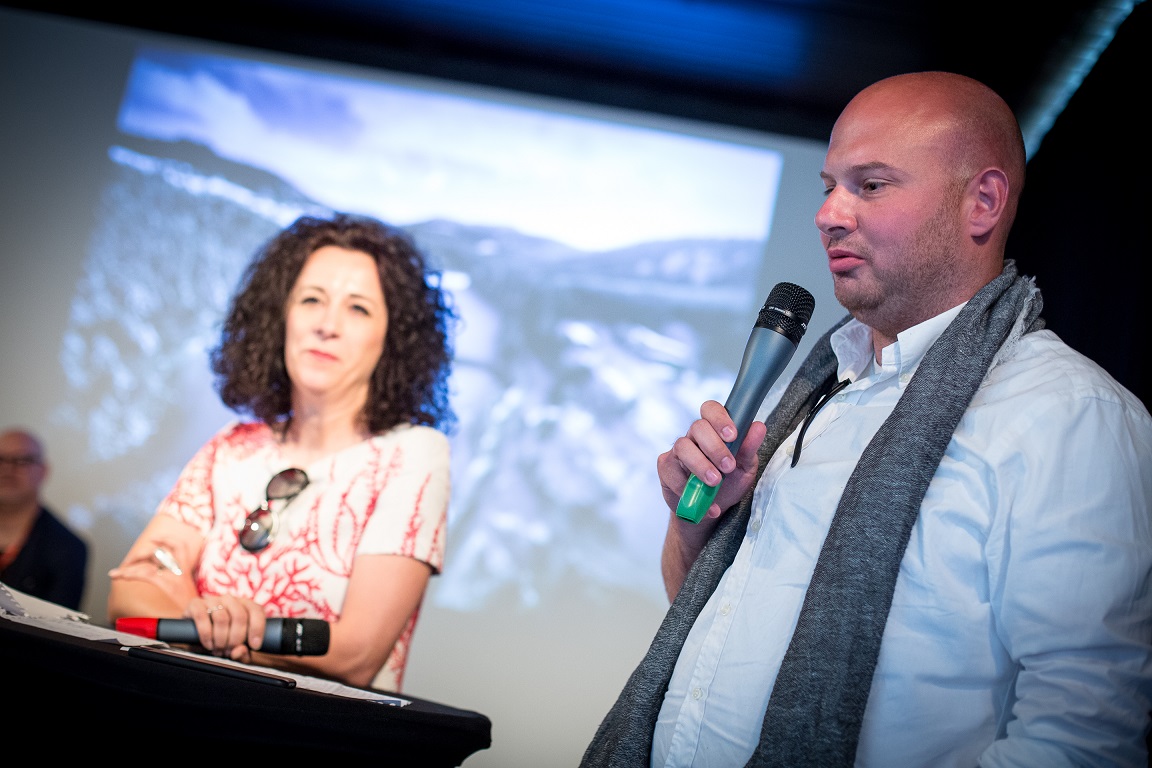 Slovak producer-director Mátyás Prikler debuted in 2013 with the feature-length family film Fine, Thanks. Since then, between jobs as a producer, he’s been at work on his sophomore feature, Power, again co-written with Marek Leščák, who is credited on the screenplays for a raft of recent hits at home. In Prikler’s latest project, which he describes as “a political thriller with psychological insight,” he scrutinizes “the structure of power and the relativity of guilt and innocence, truth and lies.” The film tells the story of an accidental murder by a high-ranking politician. Prikler intends to shoot it using film noir visuals and desaturated colors, playing with the genre rules of political crime thrillers. Power is produced by Prikler’s company, Mphilms, with coproduction by Negativ on the Czech side and Kornél Mundruczó’s Proton Cinema in Slovakia. Mundruczó himself will star in the film, with DoP Gergely Palos (A Pigeon Sat on a Branch Reflecting on Existence) on board to lens the movie.
Slovak producer-director Mátyás Prikler debuted in 2013 with the feature-length family film Fine, Thanks. Since then, between jobs as a producer, he’s been at work on his sophomore feature, Power, again co-written with Marek Leščák, who is credited on the screenplays for a raft of recent hits at home. In Prikler’s latest project, which he describes as “a political thriller with psychological insight,” he scrutinizes “the structure of power and the relativity of guilt and innocence, truth and lies.” The film tells the story of an accidental murder by a high-ranking politician. Prikler intends to shoot it using film noir visuals and desaturated colors, playing with the genre rules of political crime thrillers. Power is produced by Prikler’s company, Mphilms, with coproduction by Negativ on the Czech side and Kornél Mundruczó’s Proton Cinema in Slovakia. Mundruczó himself will star in the film, with DoP Gergely Palos (A Pigeon Sat on a Branch Reflecting on Existence) on board to lens the movie.
Old-Timers
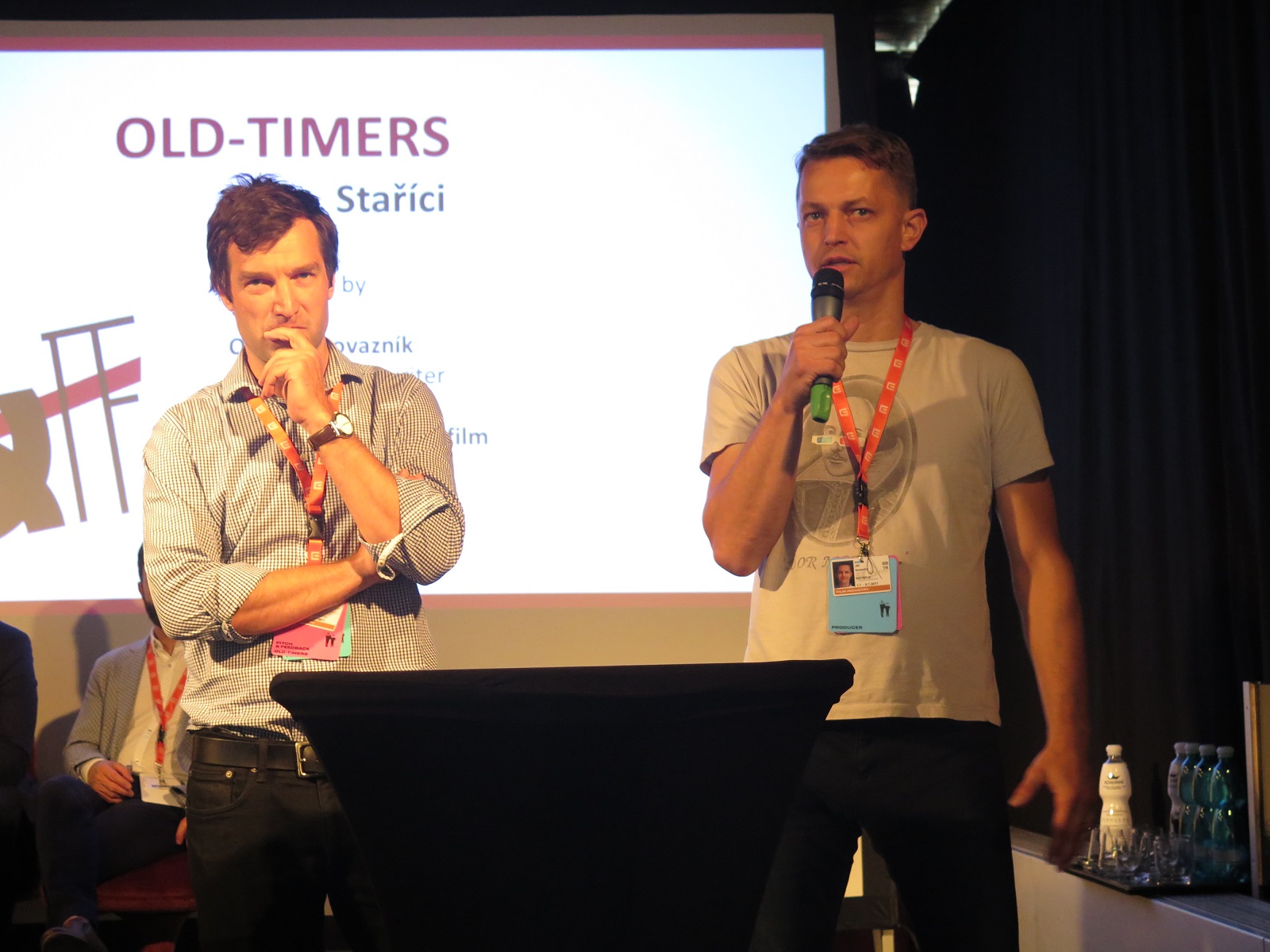 Several Czech and Slovak documentary-trained filmmakers have made the transition to fiction filmmaking lately, and the shift has proven successful. The same pattern is followed by the new project produced by Jiří Konečný, of independent film production company endorfilm, a genre film combining action-thriller with a road movie, spiced up with some absurdist poeticism. The project, titled Old-Timers, is written and directed by the award-winning documentarian duo Martin Dušek and Ondřej Provazník, while Dušek himself helmed Into the Clouds We Gaze, a provocative portrait of the young “lost generation.” Old-Timers is a story inspired by true events about two octogenarians, former political prisoners who take justice into their own hands to dish out revenge against a Communist prosecutor from the 1950s who was never punished for his crimes. Old-Timers revolves around the twin themes of old age and coming to terms with the Communist past. Ondřej Provazník says, “It’s about the contrast between what our aged characters experience as current and pressing, and the actual reality of contemporary life, which in a sense is indifferent and irrelevant to their efforts and the traumas they have experienced.”
Several Czech and Slovak documentary-trained filmmakers have made the transition to fiction filmmaking lately, and the shift has proven successful. The same pattern is followed by the new project produced by Jiří Konečný, of independent film production company endorfilm, a genre film combining action-thriller with a road movie, spiced up with some absurdist poeticism. The project, titled Old-Timers, is written and directed by the award-winning documentarian duo Martin Dušek and Ondřej Provazník, while Dušek himself helmed Into the Clouds We Gaze, a provocative portrait of the young “lost generation.” Old-Timers is a story inspired by true events about two octogenarians, former political prisoners who take justice into their own hands to dish out revenge against a Communist prosecutor from the 1950s who was never punished for his crimes. Old-Timers revolves around the twin themes of old age and coming to terms with the Communist past. Ondřej Provazník says, “It’s about the contrast between what our aged characters experience as current and pressing, and the actual reality of contemporary life, which in a sense is indifferent and irrelevant to their efforts and the traumas they have experienced.”
Year of the Widow
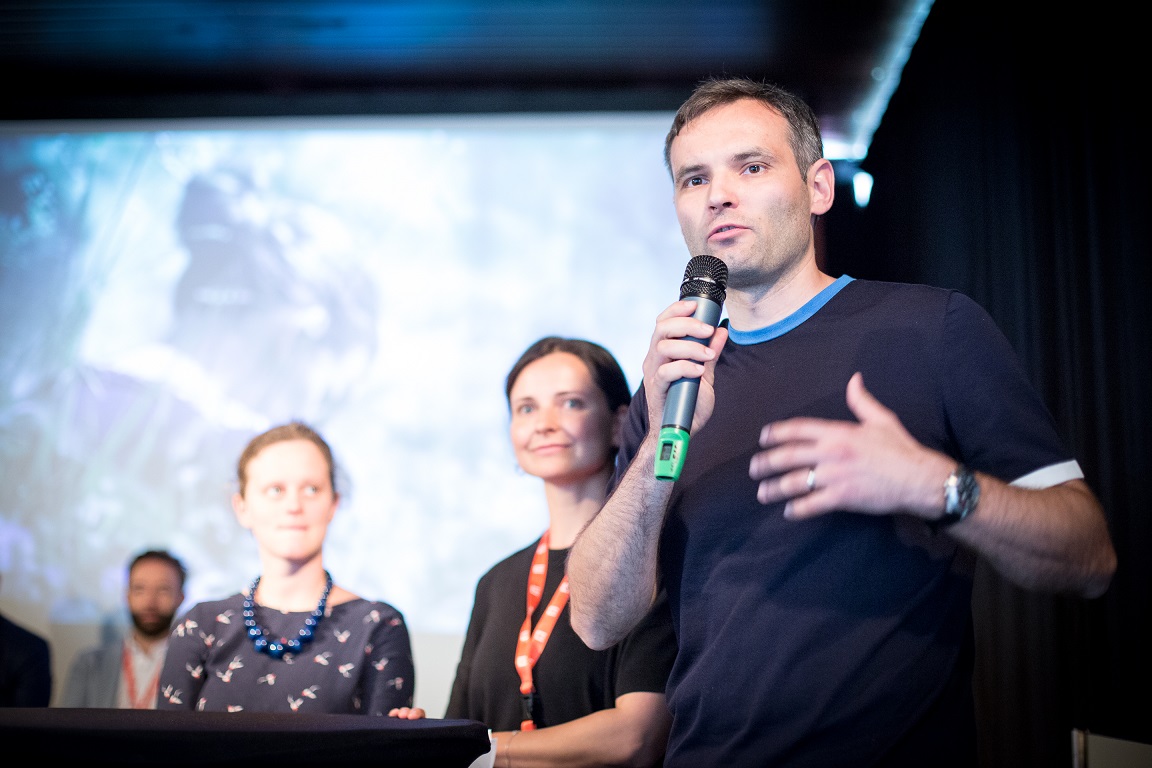 The inspiration for Veronika Lišková’s first feature-length fiction Year of the Widow comes from the candid recounting of a woman’s first year without her husband, which Lišková read in a magazine. She and Eugen Liška co-wrote the screenplay as a minimalistic drama, based on a series of inner and outer microdramas that the lead character faces as a single parent, including financial insecurity and the Kafkaesque struggle with indifferent bureaucracy. The director says she aims to address the topic, still taboo in Czech society while capturing “the clash between a person’s individual perception of a situation and reality, which ruthlessly goes on about its business.” Lišková came to prominence on the festival circuit with her award-winning documentary Daniel’s World, the thought-provoking portrait of a young paedophile. In her first fiction outing, Lišková employs a style blending documentary and fiction filmmaking methods into a docudrama mold.
The inspiration for Veronika Lišková’s first feature-length fiction Year of the Widow comes from the candid recounting of a woman’s first year without her husband, which Lišková read in a magazine. She and Eugen Liška co-wrote the screenplay as a minimalistic drama, based on a series of inner and outer microdramas that the lead character faces as a single parent, including financial insecurity and the Kafkaesque struggle with indifferent bureaucracy. The director says she aims to address the topic, still taboo in Czech society while capturing “the clash between a person’s individual perception of a situation and reality, which ruthlessly goes on about its business.” Lišková came to prominence on the festival circuit with her award-winning documentary Daniel’s World, the thought-provoking portrait of a young paedophile. In her first fiction outing, Lišková employs a style blending documentary and fiction filmmaking methods into a docudrama mold.


